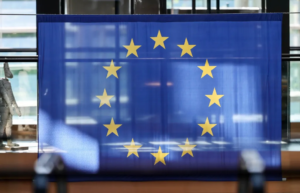
The EU Council announced on Saturday that it has agreed with the European Parliament on a €192.8 billion EU budget for 2026.
“Today’s agreement demonstrates that Europe is able to act even in challenging times. The EU budget for 2026 will allow us to realize our common priorities: security, competitiveness and border management – while ensuring that we can respond quickly and effectively to unforeseen needs and crises,” said Nicolai Wammen, Minister of Finance of the Danish Presidency of the Council of the EU and the Council’s chief negotiator on the 2026 budget.
The total EU budget commitment for 2026 is €192.8 billion and total disbursements €190.1 billion. “Commitments are legally enforceable promises to spend money on activities whose implementation is spread over several financial years. Payments cover expenditure arising from commitments made under the EU budget in the current and previous financial years,” the council explains in a published communiqué.
This is the sixth annual budget of the EU’s long-term budget for 2021-2027. The 2026 budget is complemented by measures to support post COVID-19 recovery under the special NextGenerationEU program, the document notes.
Disbursements for EU defense and security in 2026 are planned at €2.25 billion. For migration and border management – 3.88 billion euros. For neighborhood policy and foreign policy – 16.56 billion euros. For the common market, innovation and digitalization – 23.33 billion euros.
Now the EU Council and the European Parliament must formally approve the agreement reached. The EU Council is expected to approve it on November 24. A qualified majority vote is required to pass the budget, according to the communiqué.
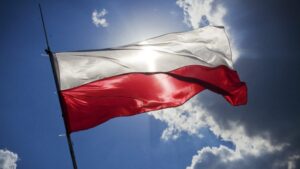
On January 1, Poland will assume the presidency of the Council of the European Union for the second time, 20 years after the country joined the EU.
The Polish authorities have stated that the main goal of the country’s presidency of the EU Council is to implement priorities related to strengthening security. Warsaw motivates this choice, in particular, by the threat to the European Union that it sees from Russia.
“The Polish presidency will support activities to strengthen European security in all its dimensions: external, internal, information, economic, energy, food and health,” the program of the EU Council presidency states.
The Polish presidency promises to make efforts to uphold and promote the principles and values of the EU, emphasizing the special role of civil society.
Explaining its priorities, the Polish presidency points to “rising geopolitical tensions, the erosion of the international rules-based order, and hybrid attacks against European democracy and security.” All of this, according to Warsaw, “obliges us to defend the values on which the community is based, such as democracy, freedom and the rule of law.”
“For Europe, this is a time of tests and decisions. The EU must protect itself and its citizens and take care of its immediate neighbors. It must give Europeans a sense of security and prospects for development… To make Europe safer, we need the unity of the European Union and its willingness to work together with partners who share our values, including those who seek EU membership. We will support merit-based enlargement of the EU – welcoming new members is a geopolitical imperative and an opportunity to spread stability and economic growth across the continent,” the program says.
The Polish presidency announces plans for “continued support for Ukraine and its recovery” and the intention to “increase pressure on Russia and its allies.”
In defining defense tasks, Poland insists on “coordinated and ambitious actions that complement NATO’s efforts.” “It is necessary to increase defense readiness by increasing military spending, strengthening the defense industry and closing gaps in defense capabilities. The Polish Presidency will support these measures and will seek an in-depth discussion on defense funding in the EU. At the same time, member states must increase defense spending and maintain it at a level commensurate with threats,” Warsaw said.
The Polish presidency replaces the Hungarian presidency and, according to the rules of rotation of the EU Council presidency, will provide this function for six months. From July 2025, Denmark will take over the presidency.
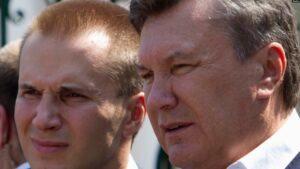
The EU Council on Wednesday decided to impose restrictive measures against two additional persons – ex-President of Ukraine Viktor Yanukovych and his son Oleksandr – in response to the ongoing unjustified and unprovoked military aggression of the Russian Federation against Ukraine.
The Council added the pro-Russian former President of Ukraine Viktor Fedorovych Yanukovych and his son Oleksandr Viktorovych Yanukovych to the list of persons, entities and bodies subject to restrictive measures set out in the Annex to Decision 2014/145/CFSP for their role in undermining or threatening the territorial integrity, sovereignty and independence of Ukraine and the state’s stability and security, as well as – in the case of Oleksandr Viktorovych Yanukovych – for conducting transactions with the separatist groups in the Donbas region of Ukraine, the European Council said on its website.
The relevant legal acts are published in the Official Journal of the EU.
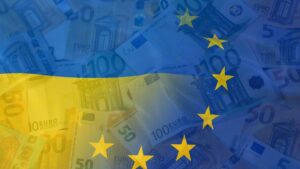
The Council of the European Union approved on Friday the decision of the European Commission to provide additional macro-financial assistance worth EUR 1.2 billion to Ukraine.
“The current geopolitical tensions are having a severe economic impact on Ukraine. Member states are ready to provide EUR 1.2 billion macro-financial assistance. We decided to support the Commission’s proposal today, so that the financial help can reach Ukraine without delay,” President of the EU Council, French Minister for Economic Affairs, Finance and Recovery Bruno Le Maire said.
The decision will come into force after approval by the European Parliament, which should happen in the near future. The emergency macro-financial assistance is set to have a duration of 12 months and it would consist of two disbursements. The disbursement of the second tranche would be linked to the continuous satisfactory implementation of both an IMF programme and the policy measures agreed in the Memorandum of Understanding.
“Persistent security threats have triggered a substantial outflow of capital. Against the backdrop of the loss of access to international capital markets due to the heightened geopolitical uncertainty and its impact on the economic situation in Ukraine,” the EU Council press service said, justifying the urgency of providing additional assistance.
The EU-Ukraine Association Agreement, which entered into force on September 1, 2017, brings the Ukraine and the EU closer together. In addition to promoting deeper political ties, stronger economic links and the respect for common values, the agreement has provided a framework for pursuing an ambitious reform agenda, focused on the fight against corruption, an independent judicial system, the rule of law, and a better business climate.
Among other support instruments, between 2014 and 2021 the EU supported Ukraine through five consecutive Macro-Financial Assistance (MFA) operations that totalled EUR 5 billion of loans.
On February 1, 2022, the Commission submitted a proposal for an additional 1.2 billion macro-financial assistance to Ukraine in the form of loans to strengthen stability.
The same amount of assistance, but from France, was announced by President Emmanuel Macron during a recent visit to Kyiv. He called it “state guarantees for financing Ukrainian projects of French companies” within the agreement reached back in May.
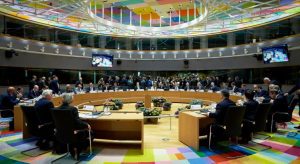
The EU Council decided to extend for another year, until March 6, 2022, sanctions in the form of freezing assets for seven persons identified as responsible for the misappropriation of Ukrainian state funds.
The corresponding decision was published on Thursday. “The Council today decided to prolong for one more year, until March 6, 2022, the existing asset freezes directed against seven individuals identified as responsible for the misappropriation of Ukrainian state funds or for the abuse of office causing a loss to Ukrainian public funds. The restrictive measures against one person were prolonged until September 6, 2021, and those against two persons were not extended,” the statement said.
The EU Council noted that this decision was taken on the basis of the annual review of the measures, with the subsequent publication in the Official Journal on March 5, 2021.
The names of those, in respect of which the sanctions were not extended, were not indicated. Initially, there were 18 people in the sanction list.